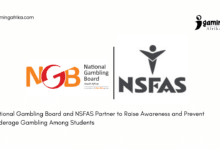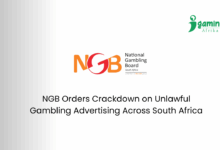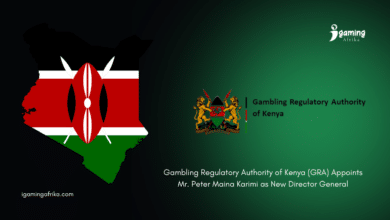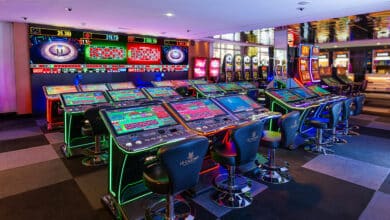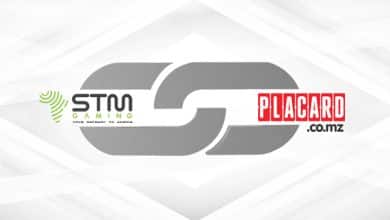National Gambling Board welcomes the Supreme Court of Appeal Ruling on the Bookmakers Offering Roulette games and Casino games
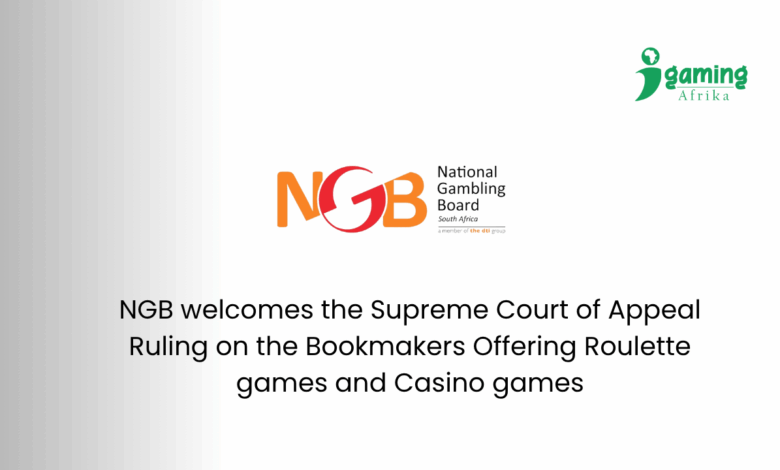
Pretoria, 29 OCTOBER 2025 – The NGB has noted and welcomes the ruling by the SCA regarding roulette games offered by bookmakers in the case of Portapa (Pty) Limited t/a Supabets and Others v Casino Association of South Africa and Another, and The Gauteng Gambling Board v Casino Association of South Africa v Portaba (Pty) Ltd t/a Supabets and Others (182/2024 & 215/2024) [2025] ZASCA 158 (21 October 2025).
The SCA held that in terms of the Gauteng Gambling Act 4 of 1995, it is unlawful for bookmakers to offer fixed-odds bets on the outcome of a casino game, including the game of roulette. This SCA judgment has affirmed the deliberate South African gambling policy approach to the regulation of casinos, betting, limited payout machines, and bingo as separate modes of gambling. Licensees are required to operate strictly within the parameters of their licensed gambling mode.
South Africa does not permit interactive gambling, while the betting sector is permitted to offer their fixed odds betting through online platforms. The authority to accept bets online by betting licensees is/was not intended to extend to interactive gambling as this remains unlawful in terms of section 11 of the National Gambling Act 7 of 2004 (“NGA”). By offering online casino-type games, certain betting operators are effectively operating as casinos, in contravention of the law. This is not only unlawful, but it is an unfair practice as licensed casinos are prohibited from offering similar casinostyle games online. The unfairness is exacerbated by the fact that casinos are subject to a higher tax bracket than bookmakers, despite the latter benefitting from having a wide market reach through the ease of access to online casino games.
Read Also: NGB Introduces Streamlined Submission Process for Type B Applications
The SCA judgement further clarifies that the argument that the bookmakers are offering casino games as contingencies by betting on the outcomes of casino as permitted in terms of section 4 of the NGA is not sustainable. This reaffirms the NGB’s interpretation that contingencies permitted in the betting sector refer to contingencies on events or occurrences that are still to take place and that casino games cannot be classified as events or occurrences.
While this judgment was premised on the interpretation of the Gauteng Gambling Act, its implications extend to all bookmakers across the country. Therefore, the NGB calls on all bookmakers who engage in this practice of offering casino-style games as their source of contingency betting to refrain from such practices and comply with the applicable laws.
“The NGB calls on the Provincial Licensing Authorities to monitor that their respective licensees comply with the applicable law and their licence conditions, and also ensure that swift and decisive action is taken in accordance with the applicable laws of the country in cases of non-compliance,” says Mr Dukwana, Acting Chief Executive Officer.
The NGB is empowered in terms of section 16 of the NGA to confiscate winnings associated with illegal gambling activities and this includes offering gambling on an activity or contingency that is unlawful in terms of section 7 of the NGA. Interactive gambling is unlawful and any person or entity offering such games is engaging in unlawful gambling operations. Winnings emanating from interactive gambling will be isolated and confiscated in line with section 16 of the NGA. Furthermore, the NGA imposes criminal sanctions for anyone who acts in contravention of the NGA in the form of imprisonment not exceeding 10 years or a fine not exceeding R10 million or both. The NGB will continue to work together with the PLAs and all relevant stakeholders to ensure effective enforcement of these measures.
About The National Gambling Board
The National Gambling Board (NGB), an agency of the Department of Trade, Industry and Competition (dtic), was established in terms of the National Gambling Act, Act No 33 of 1996 which was repealed on 01 November 2004 by the National Gambling Act, 2004, (Act No 7 of 2004) (‘the Act’). The Act makes provision for the oversight of matters relating to casinos, bingo, betting and wagering and Limited Payout Machines (LPMs), and promotes uniform norms and standards in relation to gambling throughout South Africa.
The strength of the NGB is informed by multiple decades of regulating a gambling industry which was fragmented with low credibility from the pre-1994 era. Its performance outcome is an effectively regulated and continuously supervised gambling industry, which is a significant economic sector that upholds national and internationally recognised standards of compliance and consequently national and international industry reputation.
The NGB is a regulator with concurrent competencies with the provincial gambling regulators. Its work is to ensure harmonisation and consistency with the National Gambling Act and its statutes. The NGB provides a stable environment within which the gambling industry can grow its operations for the benefit of all.
Additionally, the NGB prioritises broad-based public education around illegal gambling and responsible gambling in the best interest of the South African public, balancing a capable state, with the economic growth of the industry and social cohesion.








